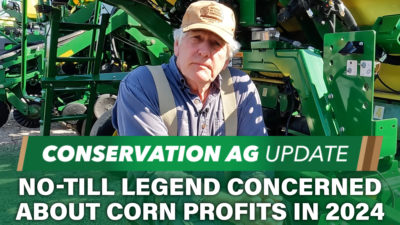With heightened consumer awareness about what goes into growing their food, pesticides made from biological compounds have become increasingly popular.
At last week's PMA Fresh Summit conference, four representatives from the biopesticide industry took time to discuss the role biopesticides currently have in the produce industry and what role they'll play in the future.
The biggest benefit of biopesticides is that they're effective at protecting crops, noted Rick Melnick, manager of global marketing and brand management for Valent Biosciences. They're effective at fighting pests and increasing crop yields, but they achieve that efficacy with added benefits.
"The value proposition for biopesticides has always been the same” said Melnick. “They're effective versus the pests they're targeting with no residues left behind and with additional worker safety benefits.” That biopesticides are effective is the biggest selling point, but on top of that, they offer things which the marketplace, whether driven by regulations or consumers, is demanding.
"Requirements concerning residues and resistance management, we only see those issues getting bigger,” said Tim Damico, executive vice president for Certis USA. “We don't see those issues going away any time soon, so we're anticipating greater adoption of biopesticides as time goes on.”
Scott Peterson, agricultural sales manager for Sipcam Agro USA, pointed to Europe as an example of where the United States might be heading in terms of adoption of biopesticides. Because more European consumers demand produce that hasn't been treated with conventional pesticides, the use of biopesticides is more prevalent there.
"You look at Europe right now, and it's setting the standard for biopesticides,” said Peterson. “So we can look at Europe and see what's coming for the U.S. You can see where it's heading, and it's toward chemicals that are biologically driven.”
"It's now the norm over there,” added Damico. “It's normal practice in Europe to use no-residue products. The use of biopesticides in Europe is, on a per-acre basis, higher than it is here, and what's happened over there can certainly happen here.”
Though many think that consumer awareness will benefit biopesticides in the future, as of now, consumer pressure for biopesticides is not as strong in the U.S. as it is in Europe, said Bill Stoneman, executive director for the Biopesticides Industry Alliance. But that doesn't make the value proposition for biopesticides any less compelling.
"If I can get good control using a biological approach, it's logical to do so” he said. To be able to use biopesticides as another tool in the arsenal is what Stoneman predicts will happen, and though they occupy a niche market right now, Damico added that the future will most likely be a mix of both conventional and biological compounds.
"In the past, we had two distinct grower groups; one that used our technology and one that used nothing but conventional pesticides,” said Damico. “But what we've seen in the past five years is a merging of the two practices. So I just see the two technologies being used in unison.” That will certainly mean an increased role for biopesticides.
"We're at the beginning of the hockey stick,” said Melnick. “This is the way the industry is going, and it's only going to go up from here.”






Post a comment
Report Abusive Comment